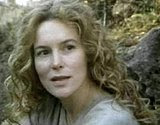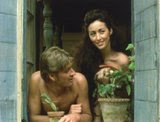Bliss was it in that dawn to be alive
But to be young was very heaven!
Wordsworth
We had an election here two days ago and I’m a registered Democrat who voted for Obama/Biden.
I’m thrilled and proud and can’t think of it without tearing up. I voted early in the morning, with a wait in line of over an hour, a great convivial atmosphere, and donuts and coffee sold by our enterprising local Girl Scout troops. Then I parked myself in front of the tv that evening to watch the returns, expecting a long, long night. And there’s this wonderful, breathless, exciting feel that history has been made, and we’re witness to it. Will the election of 2008 be considered by future historians as the great turning point in American history?
Yes, but what has this to do with the Regency?
I’m getting there.
 T
T he great turning point for the Regency was the French revolution. Just as we feel now, that history has been made and a new era is beginning, people then might remember where they were when they heard about the fall of the Bastille. The French revolution was the wakeup call of its day, a source of inspiration and hope.
he great turning point for the Regency was the French revolution. Just as we feel now, that history has been made and a new era is beginning, people then might remember where they were when they heard about the fall of the Bastille. The French revolution was the wakeup call of its day, a source of inspiration and hope.
It’s hard to reconcile this with the later terror and despotism, but you have to remember that the revolution was not, in its early days, about beheading aristos. The three colors of the tricoleur included white for the Royal Family of France and red and blue for the city of Paris. It was to be a new age of reason and of liberty, fraternity, and equality.
The year 1788 may be assumed as the epoch of one of the most important crises produced by this feeling. The sympathies connected with that event extended to every bosom. The most generous and amiable natures were those which participated the most extensively in these sympathies.
Shelley
You have to remember that at this time, about one in ten men in England could vote, and the right to vote was based on property ownership. It’s no wonder that the possibilities raised by the the ideals of liberty, fraternity, and equality resonated over the Channel and around the world.
 Voting reform was one of the hot issues of the first few decades of the nineteenth century, and the government clamped down severely upon radicalism or attempts to form unions. It wasn’t until 1832 that the Reform Bill expanded voting rights (some) and cleaned up some of the worst abuses of the system. This uninhabited hill, Old Sarum, abandoned in the thirteenth century when the city of Salisbury was built, was a “rotten borough,” represented in Parliament, when the huge new industrial cities like Manchester or Liverpool were hardly represented at all. For more about the Reform Bill, see this entry in Wikipedia.
Voting reform was one of the hot issues of the first few decades of the nineteenth century, and the government clamped down severely upon radicalism or attempts to form unions. It wasn’t until 1832 that the Reform Bill expanded voting rights (some) and cleaned up some of the worst abuses of the system. This uninhabited hill, Old Sarum, abandoned in the thirteenth century when the city of Salisbury was built, was a “rotten borough,” represented in Parliament, when the huge new industrial cities like Manchester or Liverpool were hardly represented at all. For more about the Reform Bill, see this entry in Wikipedia.
How do you feel about the election? What was your voting experience like?






























